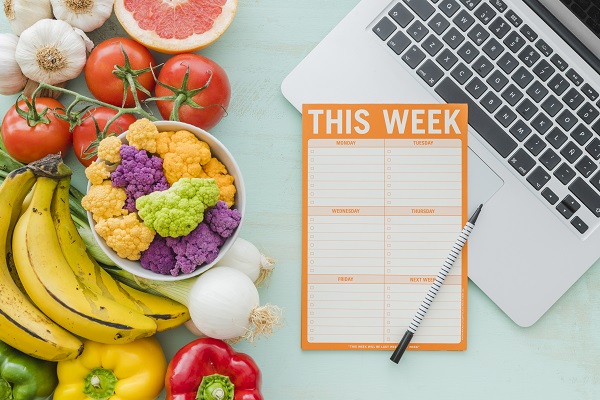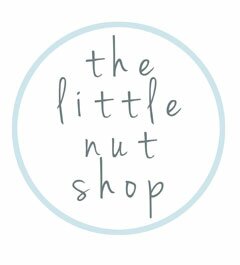
When it comes to managing a busy week efficiently, meal prep can be a valuable tool. By planning meals ahead of time, cooking in larger batches, and organizing your refrigerator thoughtfully, you can streamline your week.
However, there may be occasions when time is limited or creativity is lacking for meal preparation. In such instances, it is helpful to employ practical strategies to overcome these challenges and ensure a week free of stress, with a supply of tasty, homemade meals readily available.
Meal Prep Benefits and Downsides
Meal prepping offers several advantages that can enhance one's lifestyle. It's a time-saving practice that reduces the stress of preparing meals during busy weeknights. By having pre-prepared meals readily available, individuals can save time and effort on cooking daily. Furthermore, meal prepping encourages healthier eating habits by promoting portion control and balanced nutrition. This can aid in weight management and contribute to increased energy levels.
While there are some downsides to meal prepping, such as potential monotony in meal choices and freshness concerns, the overall benefits outweigh these minor drawbacks.
Additionally, meal prepping can lead to cost savings by minimizing the need to eat out and reducing food waste. Key strategies like batch cooking, portioning meals properly, and organizing food in the refrigerator can optimize the meal prep process. You can visit Eating Out Loud for inspiration.
Meal Prep Techniques and Tips
Incorporating efficient techniques and tips can enhance your meal prep process. Batch cooking allows you to prepare multiple servings of a dish, saving time. Portioning meals into containers enables easy access throughout the week. Prepping ingredients in advance, like chopping vegetables or marinating proteins, can expedite cooking. Organizing your fridge with clear labels and storage containers helps maintain freshness.
Tailoring meal prep techniques to your preferences can make the process more enjoyable. These strategies can save time, promote healthy eating, and simplify grocery shopping and meal planning. Experiment with new recipes and experience the benefits of effective meal prepping.
Meal Prep Recipes by Meal Type
Meal prep routines can be enhanced by incorporating a variety of recipes tailored to different meal types. For a quick breakfast option, consider preparing a Make-Ahead Egg and Cheese Sandwich.
For lunch, portable choices like Chickpea Pasta Salad in a Jar or a Green Goddess Sandwich can be convenient and tasty.
Dinner options include a flavorful Pork and Veggie Stir Fry or a Grilled Vegetable Lasagna With Ricotta-Tomato Sauce.
Snack choices such as Easy Yogurt Dip or Almond-Buckwheat Granola offer convenient and healthy alternatives.
Experiment with diverse options like Mason Jar Instant Noodle Soup, Vegetarian Antipasto Salad, and Air Fryer Falafel Salad to keep meal prep interesting and flavorful.
Food Storage and Safety
Proper food storage and safety practices are crucial for maintaining the quality and safety of prepared meals. Refrigerated foods can typically be kept for 2-5 days, while freezing extends the shelf life to 3-4 months, depending on the ingredients used. It's important to keep food out of the danger zone temperature range of 40°F - 140°F to prevent bacterial growth and foodborne illnesses. Airtight packaging helps preserve flavor and moisture, while also preventing freezer burn.
Labeling containers with dates is essential for tracking freshness and minimizing food waste. To prevent cross-contamination, store raw meats separately from vegetables. Glass containers are a good option for storage as they're durable and don't absorb odors. By following these guidelines diligently, you can ensure that your meals remain safe, fresh, and enjoyable throughout the week.
Meal Planning Strategies and Tools
Effective meal prep relies on strategic meal planning and the use of appropriate tools. Meal planning apps like Paprika Recipe Manager can help track recipes efficiently.
Investing in food storage containers is essential for portioning meals, especially for staple dishes to maintain variety without causing overwhelm. Labeling containers aids in tracking meals in the fridge and freezer, especially for frozen items.
Creating a grocery list ensures all necessary items are available, and considering time-saving options like salad kits and precooked rice can be beneficial.
Conclusion
In summary, meal prepping is a practical solution for individuals with busy schedules aiming to save time and maintain a balanced diet throughout the week. By following systematic meal planning, implementing efficient cooking methods, and ensuring proper food storage practices, you can streamline your meal preparation process for a less stressful and more nutritious week ahead. Embrace the benefits of having wholesome meals conveniently available whenever needed through consistent meal prepping.








Recent comments